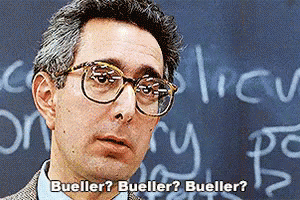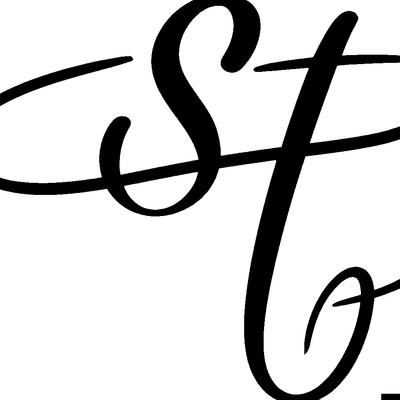3 Benefits of Audiobooks to Enhance Your Reading Experience
Hello friends,
Though I'm not a hardcore reader, I've managed to nearly double the number of books I read last year from about 10 to 20 so far. This is not meant to be a flex, because you've probably seen people who read 52 to 100s of a books a year. With that said, I think if I read a single book 1,000 times really well instead of quickly reading 1 book and getting nothing out of it; then obviously I would rather place myself in the former camp. This is not an article about reading the most books quickly, but about how to quickly get over a reading hurdle you have, even in just one book.
All of us will eventually encounter books that write and/or sound like a Ben Stein monologue, and if you don't know who that is, it's an actor who often plays characters which have a slow, monotonous, and fairly robotic voice.

Last year, I was reading books mostly with my eyes. Well, that's what we're supposed to by definition. But this year, I've been going for a hybrid approach of listening audiobooks along with reading books. Though it doesn't completely get rid of monotony, it gives you the freedom to manipulate variables on the go. I will outline the reasons below and delve deep into them.
- Manipulating Speed
- Freedom to Switch Who is Reading
- Tonality in a New Light
🏎️ Manipulating the Speed
If you were to ask my five-year-ago self that people use the speed control to listen to audiobooks to completion, I would have thought you were crazy. I often associated speeding and slowing things down as temporary things because I either (a) didn't know what the person just said or (b) I am trying to fast forward through a part without sound. To date myself here, that's usually how I used VCR players to watch videos.
However, I noticed that despite my slow talking speed, my brain can consume and absorb much more information through reading and audio. Depending on who I'm listening to, I can speed up the audio by 2x to 3x speed. This means that if an audiobook is 20 hours long, I can theoretically save almost half the day and listen to it at 2x speed, making it 10 hours long. If you can understand the likes of Ben Shapiro on 1x speed, speeding up to 2x is nothing. It's 3x speed which gets tricky. John Moschitta Jr., the fastest speaker in the world speaks at what I personally experienced to be 3x speed. See for comparison below:
Listening to an audiobook on 3x more often than not may feel like listening to John Moschitta Jr. It won't be suitable for everyone without enough practice.
Just like you, it's not possible to understand every single part of a 3x audio, so my Goldilocks spot after training my ears long enough is, as of the time of this post, around 2.5 to 2.7x speed.
Sometimes, listening at at least 2x gives enough impetus for me to continue the book as opposed to 1.5x because I have gotten accustomed to a certain rhythm to drive me forward. Though this is a weird comparison, think about the music you consume when running. The tempo is often slightly faster than your own heart rate, giving an illusion that you're living life on the fast lane. But take that same tempo and slow it down, and your brain is fooled into thinking you have nothing to run from and something feels incongruent. In certain circumstances, I mentally need to run fast through the book to make it seem like an adventure. There are exceptions and I'll explain it in my second point.

👥 Freedom to Switch Who Is Reading and What You're Reading From
The hybrid reading method of having an audiobook with the physical or digital book is a supercharger because of the plethora of choice it provides. Namely that it provides an (a) Passive Approach or (b) the Active approach, and the ability for you to switch between any of them on a whim at any time.
(a) The Passive Approach 🥱
If you know for sure that you won't be taking notes and just "enjoying the journey" from the book or audiobook, all you need to worry about is to bring your audiobook and headphones with you. Since the more passive approach to consuming books doesn't need much being done on your part, all you need to know is how to press play and pause with your headphones.

(b) The Active Approach 🧐
Sometimes there are cases where the book is dropping a lot of knowledge, or that there is something deeply sentimental in the book; in which case, I revert back to 1x speed, or just stop my audiobook player and note down the specific part of the text that resonated to me on apple notes, which leads me to the next time. Any reader worth its salt should have some sort of "highlight" and "highlight export" function, to take these notes out for further reviewing post-reading, and it's worth highlighting if you still want to incorporate a more passive approach to your note-taking so that you can review that highlight more actively down the line.

📣 Tonality in a New Light
Knowing what tone to read something in is great. Whether you are a native English speaker or someone learning it as an additional language, the power of listening to how others read a text can teach us how to read even better than we already do!
It is always interesting to hear someone who is a voice actor reading something compared to myself. I am a sucker for Stephen Fry narrated audiobooks because I have seen his comedies with Hugh Laurie, and just public speeches in general, and he carries that calibre of voice acting to his books. Not every audiobook lives up to this standard, nor does it need to, so long as it doesn't sound like a Ben Stein character.
Some books have dramatized and graphic versions which provide a movie-like experience to books that have yet to be adapted into movies. This adds background elements to the person speaking, like sound effects and more, giving a more immersive experience.
Lastly, and the most important point is that there were a few rare cases where I mistake the tonality of what was being discussed in the text with how the audiobook voice actor says it. Much like how the movie adaptation of Harry Potter took a Dumbledoor line that was supposed to be said "calmly" and changed it to "angrily" (for reference: https://www.youtube.com/watch?v=IdoD2147Fik). Knowing that there are alternative ways to read the same thing, especially one that is extremely divergent from mine, is an eye-opening experience and could in some ways alter the way I read books in the future.
Conclusion
Reading is fun, but sometimes a book can be tough to get through. That's where audiobooks come in. They let you change the speed, pick who reads to you, and help you understand how something should sound. Mixing regular reading with audiobooks can make your reading time even better. So, if you're having a hard time with a book or just want a fresh way to enjoy stories, put audiobooks in the mix. They could make reading more fun and easy for you!
💬 Quote of the Week
Our nerves aren’t a one-way street—our bodies can tell our brains as much as our brains tell our bodies. You know that phrase, “going through the motions”? That’s what’s so great about creative work: If we just start going through the motions, if we strum a guitar, or shuffle sticky notes around a conference table, or start kneading clay, the motion kickstarts our brain into thinking.
Steal Like an Artist by Austin Kleon. Resurfaced using Readwise.



Member discussion